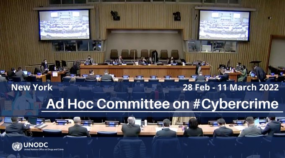Posted on 20 Dec 2013
The findings of the World Drug Report 2013 deliver important lessons for the forthcoming high-level review of the commitments that countries reaffirmed in 2009 on the measures for drug control. These measures are laid out in the Political Declaration and Plan of Action on International Cooperation towards an Integrated and Balanced Strategy to Counter the World Drug Problem.
At the global level, there has been an increase in the production and misuse of new psychoactive substances, that is, substances that are not under international control. The manufacture and use of substances that are under international control remain largely stable as compared with 2009, although trends in drug supply and demand have been unequal across regions and countries and across drug types. Member States that are party to the three international drug control Conventions, which were adopted to protect the health and welfare of mankind, remain committed to the drug control system. Evidence shows that while the system may not have eliminated the drug problem, it continues to ensure that it does not escalate to unmanageable proportions.
We have to admit that, globally, the demand for drugs has not been substantially reduced and that some challenges exist in the implementation of the drug control system, in the violence generated by trafficking in illicit drugs, in the fast evolving nature of new psychoactive substances, and in those national legislative measures which may result in a violation of human rights. The real issue is not to amend the Conventions, but to implement them according to their underlying spirit.



